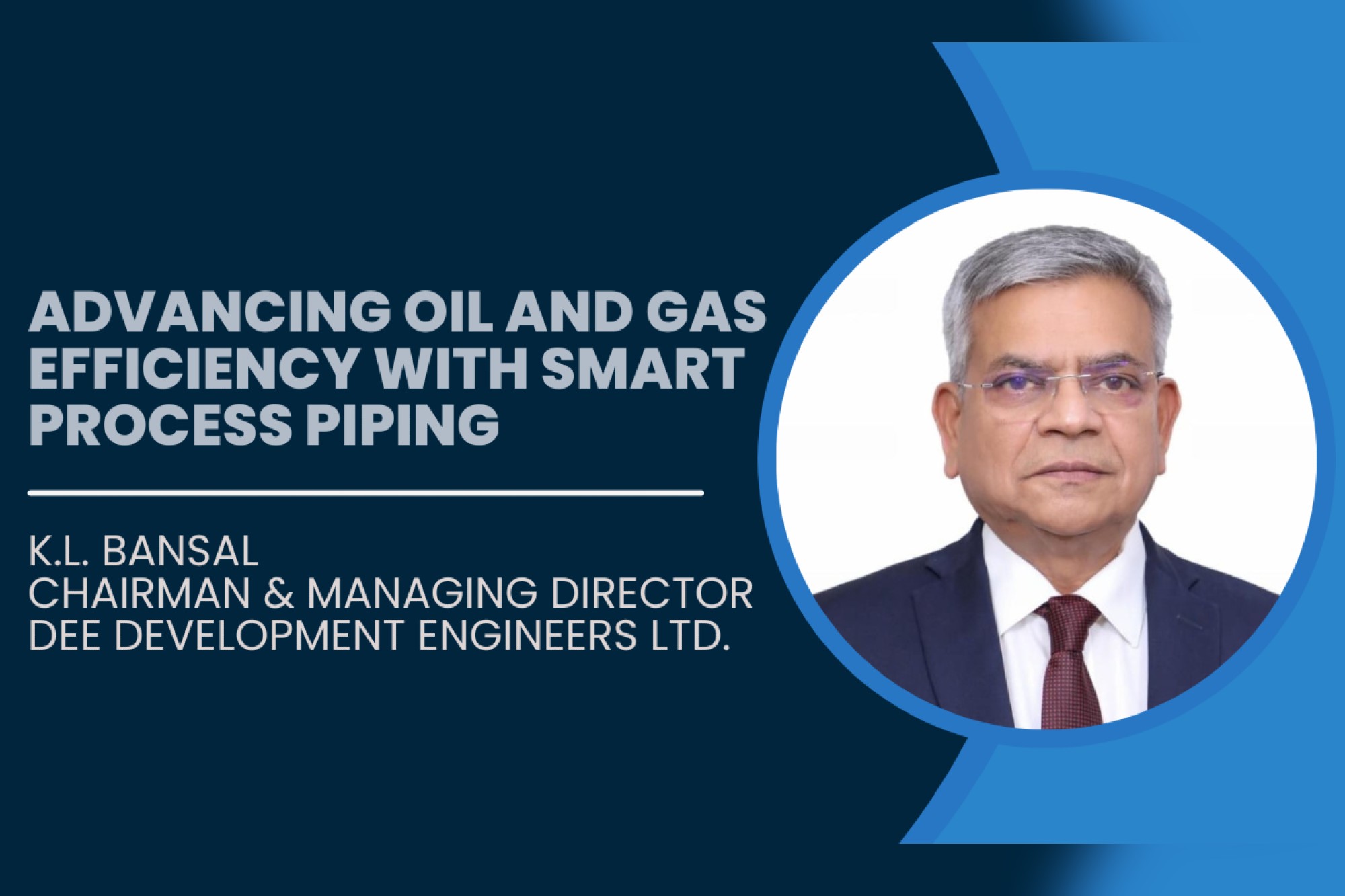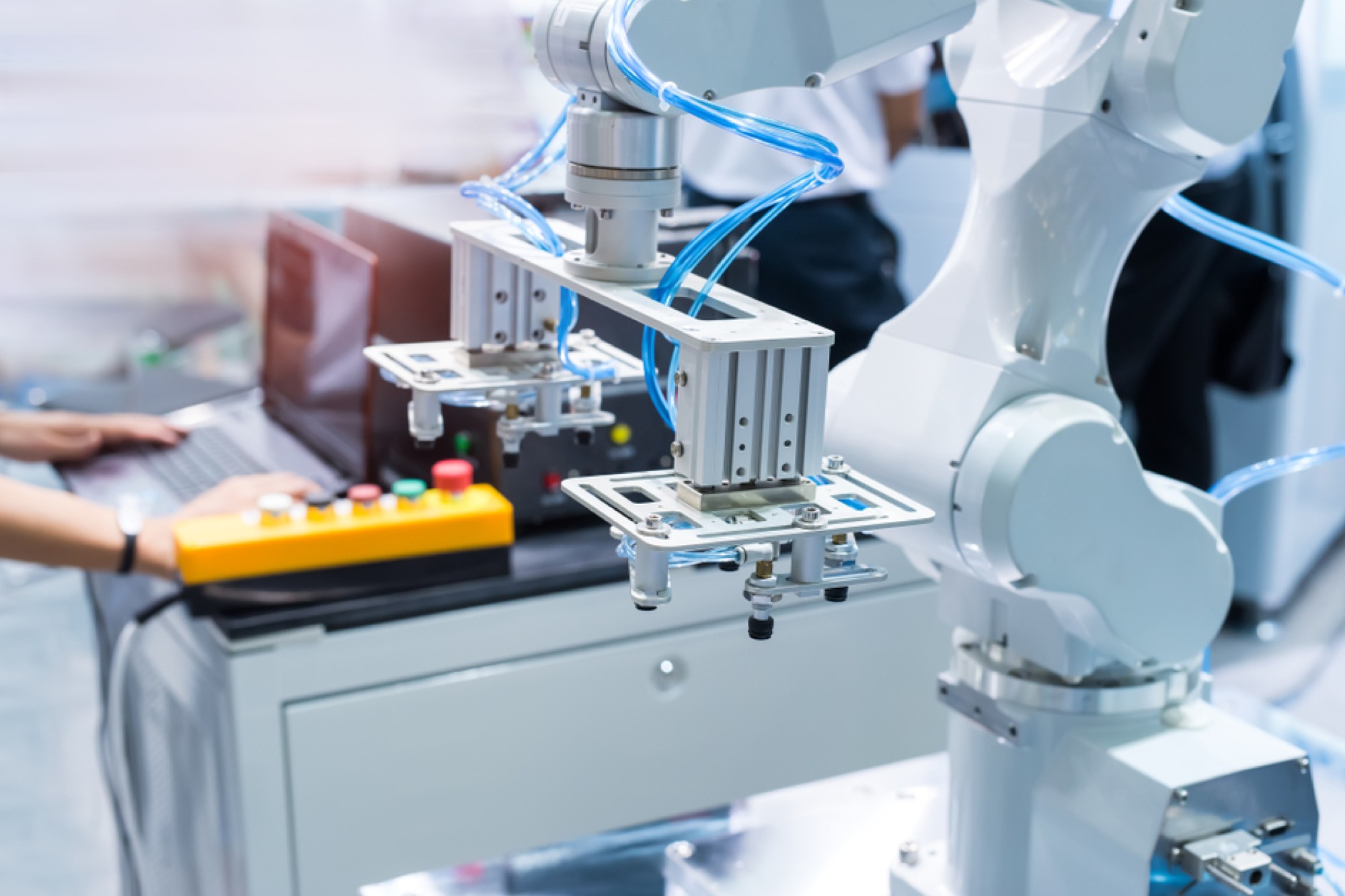Advancing oil and gas efficiency with smart process piping
By Staff Report May 12, 2025 12:45 pm IST
The next phase of oil and gas process piping will depend on a blend of smart tech, better materials, and eco-friendly approaches. Companies that embrace digital tracking, modular builds, and cutting-edge materials will boost system dependability and gain an edge in a rapidly changing field. K.L. Bansal, Chairman & Managing Director of DEE Development Engineers Limited, emphasises the importance of integrating advanced technology into the oil and gas industry to meet the growing energy demands.
With the growing energy requirements of the world, the oil and gas sector is challenged with the delivery of large volumes of fuel efficiently and sustainably. To address these demands, the industry must adapt quickly by integrating advanced technology into its operations and infrastructure. It is process piping plays its part, an engineering backbone that ensures that operations are smooth. To fulfil the need of the hour, implementing technology into the infrastructure and manufacturing operations of the sector is essential.
According to the latest Technavio report, digital transformation in the oil and gas industry is expected to grow by USD 56.4 billion at a CAGR of 14.5% between 2025 and 2029. To meet the demands of this growing industry, a digital revolution to such an extent is critical for generating opportunities that can alter the construction, maintenance & design of process piping systems.
Shift toward predictive performance
Process piping continues to evolve, with its most notable digital trends today. Real-time monitoring technology based on data prediction has reshaped businesses’ ability to track and look after operational systems. Businesses now move beyond scheduled maintenance schedules because they utilise IoT sensors to enable condition-based monitoring, which reports instant updates about pressure, temperature and corrosion levels.
Digital twin technology is transforming piping system design and testing. The market for digital twins in the oil and gas industry is growing remarkably, with a forecast CAGR of 11.2% from 2025 to 2034. These virtual doubles enable engineers to test various operation scenarios, improve layouts, and anticipate potential congestion points ahead of time before even a single pipe is laid. The outcome is a more accurate, cost-conscious system planning process that reduces error and maximises long-term performance. In addition, artificial intelligence (AI) and machine learning (ML) programs are used to examine huge amounts of data from pipeline operations.
Evolving at the core
The dynamic pace of this industry needs constant action; hence, businesses need to transform their core processes, beginning with pilot plants. Industrial production scales up through pilot plants, presenting a vital link between small-scale laboratory operations and massive commercial processing. They ensure process validation and optimisation, risk mitigation, cost and resource efficiency, regulatory and safety testing, product quality assurance, technology demonstration, training and skill development, and flexibility for innovation.
Despite the continued challenges in industrial operations, including fluctuating market demands, resource limitations, and changing regulatory standards, the demand for innovation pushes the boundaries to make operations more efficient. The advancement in tools like 3d modelling, process flow simulations, and precise design techniques allows companies to gauge valuable opportunities and stay ahead of the competitive curve. Furthermore, smart instruments and automated controls integrated into systems enable constant observation and fact-based choices, offering the ability to adapt to changing operational requirements. This move to more productive and flexible answers has a positive impact on pilot plant performance by laying the groundwork for expandable long-term success in an intricate industrial scene.
Toward A brighter, tougher tomorrow
The next phase of oil and gas process piping will depend on a blend of smart tech, better materials, and eco-friendly approaches. Companies that embrace digital tracking, modular builds, and cutting-edge materials will boost system dependability and gain an edge in a field changing faster than ever.
As challenges in energy production and delivery intensify, the importance of advancing process piping solutions will continue to rise. To meet the increasing demands of the clients, the industry will have to implement progressive strategies that focus on efficiency, safety, and resilience in the long run. Those who invest in innovation now will shape the future of energy infrastructure tomorrow.
Cookie Consent
We use cookies to personalize your experience. By continuing to visit this website you agree to our Terms & Conditions, Privacy Policy and Cookie Policy.













